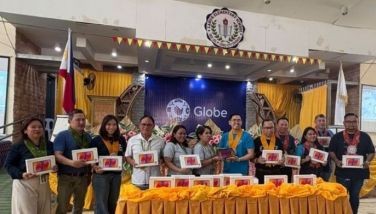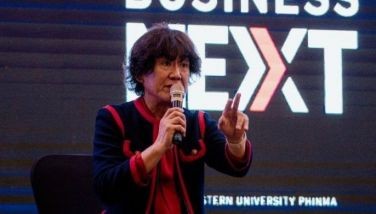LGUs told to streamline permit renewal process
CEBU, Philippines - Enterprise owners in Cebu have called on local governments to make the annual renewal of business permits and licenses easier and faster and cut down red tape.
Local government units have varying rules and procedures in business permit renewal which happens every first month of the year.
Rey Calooy, president of Filipino-Cebuano Business Club Inc, stressed procedures in securing and renewing permits should be standardized in all LGUs.
“Among gusto gyud mao ang kahapsay sa renewal, ang proseso ug pamaagi,” the Cebuano entrepreneur told The FREEMAN in an interview. “Walay standard ba… di siya makuha in one day because of many requirements. Nganong di man mahimo in just 15 minutes [ang processing]?”
Before they can process, he said business owners need to secure barangay, police and fire clearances, sanitary and waste management permits which all need payments.
“Gawas sa local taxes, naa pay fees for sanitary bisan way klaro ang [garbage] collection. Every step naay bayad,” he noted, describing the renewal process as tedious because of many procedures and bureaucracy.
Suggestions
He suggested of cutting and consolidating fees and taxes to make the process short and easy.
If long procedures and bureaucratic delays are addressed, Calooy said more micro and small enterprises in the underground economy would be encourage to join the economic mainstream.
Public services, he stressed, both in government agencies and LGUs should be consistent and efficient to attract new businesses and investments.
FCBCI, composed of more or less 200 small businessmen based in Metro Cebu, has planned to submit a position paper to various LGUs which, it said, should look into removing unnecessary and redundant procedures in renewal of local business permits.
“It’s high time to be innovative in terms of servicing the public -- the taxpayers,” he pointed out. “Let the taxpayers sit down and have coffee because we are the boss.”
‘Use technology’
Computerizing application and processing has also been eyed to make government services more competitive and efficient using new technology.
Another option, he cited, is to bring the renewal and registration activities down to barangay levels to be accessible.
Computerized or online application also allows business people save time and money required to complete the business registration course.
This also minimizes face-to-face interactions which encourage corrupting government officials by giving money to hurry the renewal method.
In a previous interview, Guillermo Luz, private sector co-chairman of National Competitiveness Council, said the kind of government system and the red tape issue are two setbacks that could potentially affect the country's growth and competitiveness.
NCC has been lobbying for streamlining of certain procedures for issuing permits and licenses -- starting a business, local business permits, etc. -- in select government agencies and LGUs.
In addition, Calooy said the government must take advantage of technology to improve its services particularly in business permit renewal which only happens every January.
Under the Local Government Code of 1991, LGUs have powers in registering enterprises, generating revenues and taxing, which give them autonomy.
Furthermore, he also explained majority of income of cities come from businesses and that enhancing public services would push more to join the formal economy. This, in turn, will give more income to Philippine cities.
He said their group initially talked with Cebu City Councilor Alvin Dizon and told the concerns of the members during its year-end meeting last month.
This month, the Cebu City government has set up a one-stop shop in SM City Cebu for the renewal of permits of around 27,000 business owners in the city. — (FREEMAN)
- Latest























